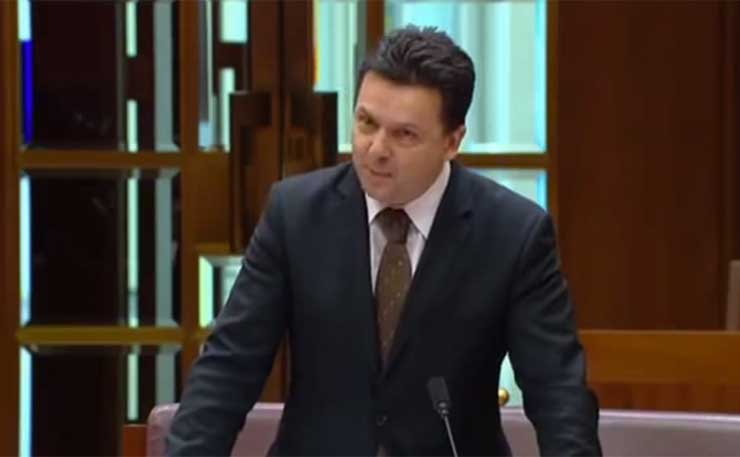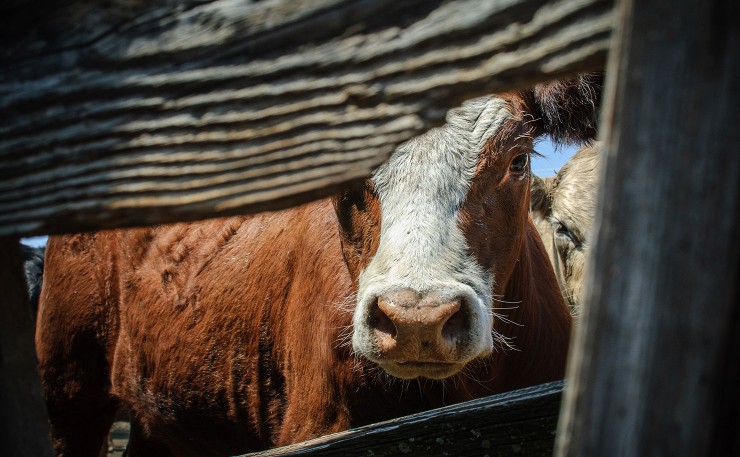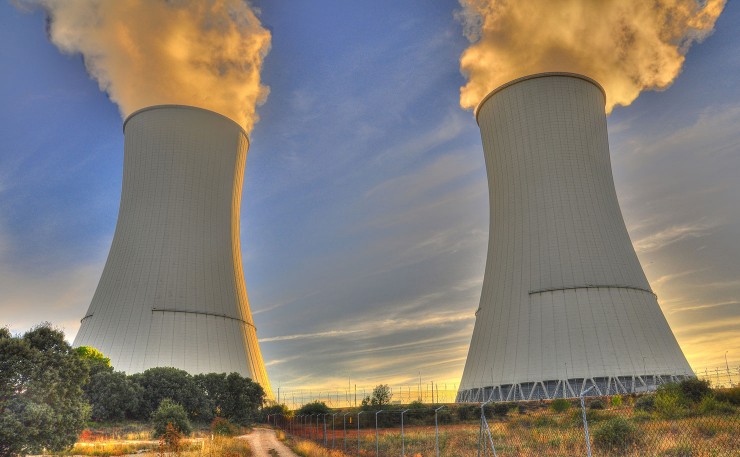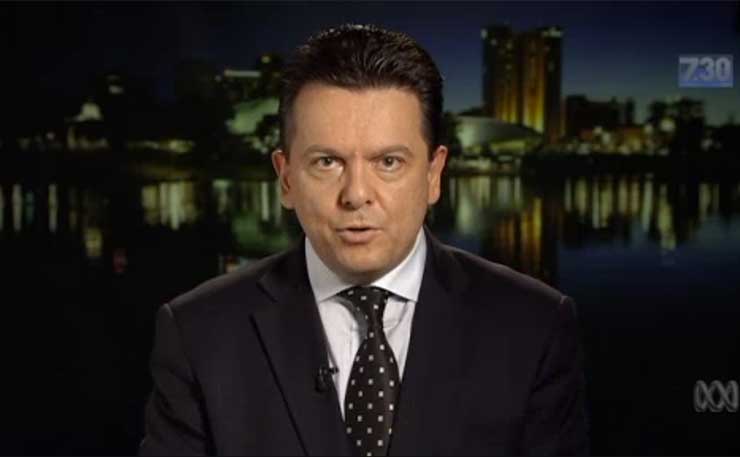The independent South Australian senator has proved to be an effective media communicator. But Geoff Russell thinks his attacks on a South Australian nuclear industry might soon blow up in his face.
It was only a short time ago, the 29th of August, that Nick Xenophon announced his party will vote against a plebiscite on same sex marriage. But now, spinning rather like a South Australian wind turbine, Nick is calling for a referendum on storing nuclear waste.
The logic is flawless.
One is a complex technical issue about which at least 90 percent of the public is deeply ignorant, at even the most basic level. So of course a referendum is a great idea!
A referendum on nuclear power would be nothing more than a crude measure of the ability of the anti-nuclear movement to sell a message of fear and panic relative to the industry’s ability on the other side to sell a message of hope in the face of climate change. Should we also have referendums on childhood vaccination because it frightens some people or fluouride in our drinking water?
In contrast, marriage equality is an issue that many people have considerable personal experience of; meaning they know one or more LGBTI people and even more have first hand experience of marriage and what it entails.
So Nick wants people voting on stuff they don’t know about, and not voting on stuff they do.

Happily, he’s worked out that many people fear a plebiscite on marriage equality not because they fear the result, but the process. They fear assault by media… meaning not just traditional radio, TV and newsprint, but all the new no-holds-barred internet cesspits.
Xenophon’s strategy on both issues makes considerable sense only if you understand his facility for shape-shifting to maximise media exposure. Whoever said you can’t fool all the people all the time hadn’t heard of Nick Xenophon and the South Australian electorate.
Okay, maybe he didn’t fool everybody, but they voted for Nick’s party in droves; his ability to make people think he has simple answers for complex problems has always been unparalleled. His brilliance for media manipulation is only matched by his inability to take a consistent line on anything.
He was first elected on a No-Pokies platform but has been strangely quite on horse racing. The strong silken gambling connections of the racing industry seem invisible before his penetrating gaze.
Or consider the dairy industry. Nick’s not a climate sceptic but backs the dairy industry. He may as well back big coal.
Dairy cattle need a very rich diet to maintain optimal output, which means they produce even more methane per head than cattle raised for meat. Cattle and coal are both just dead men walking. They have no future and we need to do to both exactly what we did to the tobacco industry… pay people to get out and make a living doing something that won’t screw the planet.

But behind Nick’s individual policy inconsistencies there is a deeper general question of how democracies should make decisions on complex issues? Do we want more public participation or less?
In theory, we are supposed to elect people to represent us. We want them to carefully sift evidence, employ experts, get briefings, have enquiries and take great pains to act in our best interest. This would include acting consistently and rationally.
People who have trouble with these concepts, can be assisted by a bureaucracy who doesn’t.
Our methods of picking these representatives, are both questionable and fallible, but pick them we do. People don’t joust or cage fight for a seat in parliament, and mature democracies don’t have coups and blood on the streets. We pick people and they then function roughly as I said… with the occasional scandal and plenty of dozing off during important parliamentary debates.
When we suspect our politicians have screwed up, by ignoring good advice, not acting diligently or putting their own personal interests ahead of ours, then we can request explanations, inquiries and ultimately replace them during elections. If the system is working well, then the actual politicians are less important than the process of good government, and a working bureaucracy behind them.
Let’s contrast this process with a referendum. With a referendum or plebiscite, most of those voting will not have spent much time at all sifting evidence or listening to experts and weighing evidence. This is particularly true on technical issues like climate change, genetically manipulated soybeans or cancer drugs, air traffic control systems, pharmaceutical benefit systems; or nuclear power.
It’s also hard to stop people with a strong financial interest in the outcome buying results via media influence in the broadest sense; it’s also hard to stop fear mongerers targeting the gullible. A referendum is just a lynch mob in a suit.
When I criticised Nick’s call for a nuclear referendum, I used a 90 percent figure for those who are deeply ignorant of nuclear basics. I didn’t just make that number up; and it’s probably an underestimate. It’s based on a 2013 poll… unfortunately by a small company no longer operating.
It was a random sample poll and pretty well constructed, so it’s results are more trustworthy than your average self-selected newspaper poll. Those polls are worse than useless.

The big eye-opening result of the 2013 poll was that only 10 percent of those surveyed were certain that a nuclear reactor can’t explode like an atomic bomb. That puts the nuclear ignorance level in Australia somewhere around 90 percent.
I’ve never seen a poll on the risks of nuclear waste, but anybody who thinks that a nuclear waste repository is more dangerous than, for example, bacon or sunshine, is deeply ignorant of radiation or cancer and probably both.
Bacon and sunshine cause thousands of cancers every year in Australia, but even if a waste repository leaks, it can’t leak radioactive material fast enough to cause anything like that kind of risk. The risks are so trivial as to be effectively zero.
Which brings us to the citizens jury of 350 South Australians currently considering the results of the Nuclear Fuel Cycle Royal Commission and it’s recommendations broadly favouring a waste repository.
This ‘jury’ is a group of almost randomly selected South Australians who will consider, debate and weigh evidence; mostly from experts, but also from the frightened.
Its eventual decisions won’t bind Government, but will give it a sense of how the public might view a decision to build a nuclear waste repository. A poll gives you an indication of people’s untutored view. This will tell you how people respond when immersed in information.
But of far more interest and use than the formal jury is the astonishing travelling road show of information and expertise associated with it. It really is coming to a town near everybody.
Those of us who’ve worked out that nuclear fear is an irrationality that has already had a heavy climate and human cost, trust that nuclear technology will thrive in an environment of open information and rational comparison of risks.
The challenge has always been how to provide this. With the Citizens Jury, the Government looks to have cracked this nut.
Do I have any personal connection with the citizen’s jury process? Certainly not yet; but there is still time.
Donate To New Matilda
New Matilda is a small, independent media outlet. We survive through reader contributions, and never losing a lawsuit. If you got something from this article, giving something back helps us to continue speaking truth to power. Every little bit counts.





